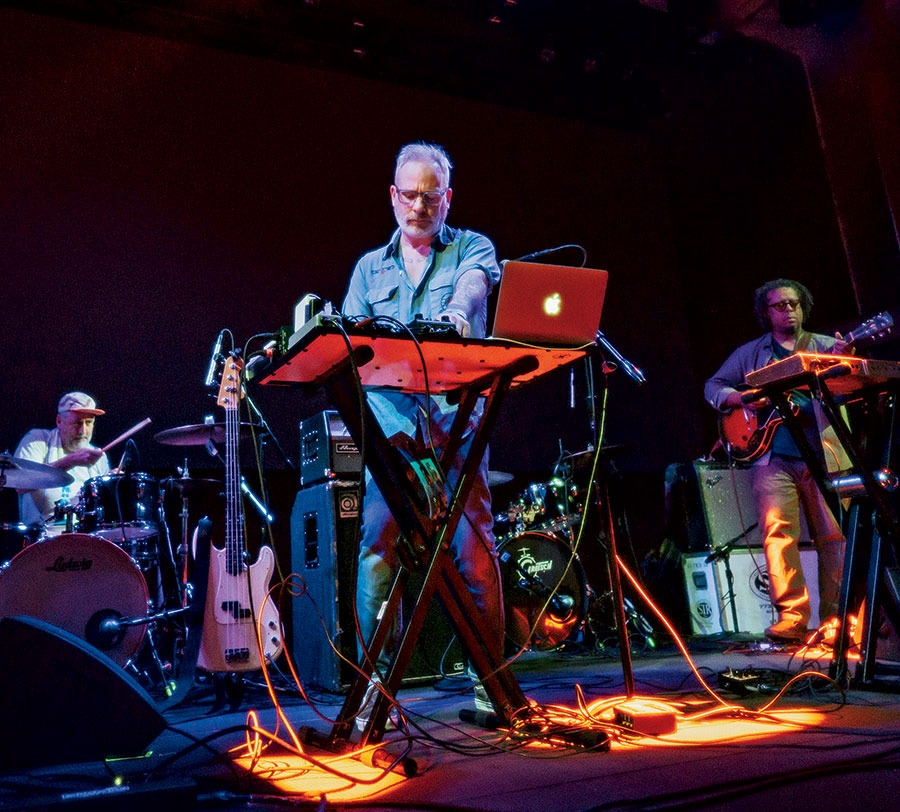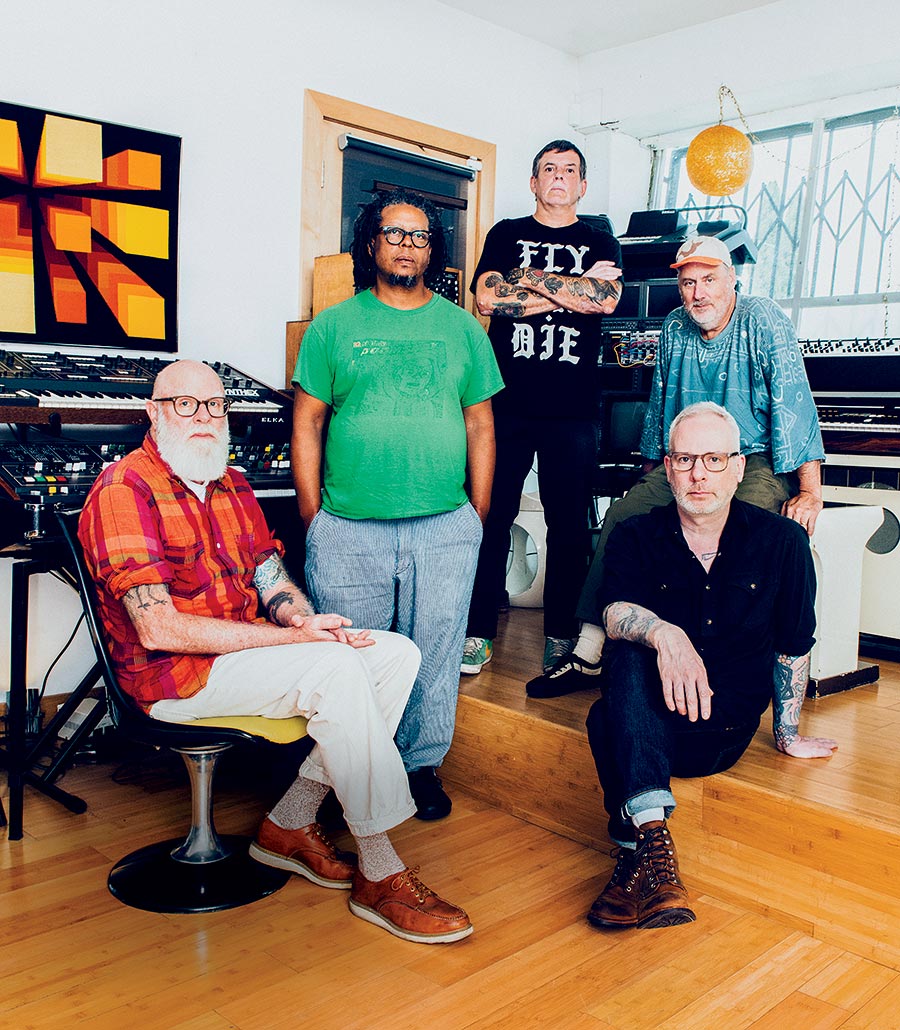The members of Tortoise don’t operate like they used to. At least not like at the beginning, back in the early ’90s, when most of the experimental rock band lived together in a converted warehouse loft in pregentrified West Town, innovating a sound that music critics dubbed “post-rock.” For starters, the quintet’s members, now spread across the country, send each other more emails. “To even have a meeting is, like, 20 emails or something,” says Dan Bitney, one of the two Tortoise members who still call Chicago home. “Then there’s always someone at the end like me today: ‘Oh my God, I can’t go to the meeting. I have to go get a tooth pulled.’ ”
Indeed, Bitney, a multi-instrumentalist like everyone else in the band, had to reschedule our interview due to an emergency trip to the dentist. But don’t take his teeth-pulling woes as a metaphor. Tortoise — which also comprises Chicagoan Douglas McCombs and three West Coasters, L.A.-based Jeff Parker and John Herndon and Portlander John McEntire — still makes stunning and adventurous music, as proved by a new album, Touch, out October 24. It’s the group’s first in nine years and its debut on the Chicago experimental-music label International Anthem.
The 10 instrumental tracks bear many of the hallmarks that made Tortoise a core part of Chicago’s musical renaissance in the ’90s: hypnotic, complex grooves (the band has three drummers), tempos that change mid-song, and, on the longer tracks, melodies that seem to take you to points unknown. This 2025 edition of Tortoise gives prominence to the synthesizers, which are harmonious and searching — until they’re not. It’s often joyful music that seems particularly well suited for the band’s show November 11 at the Auditorium Theatre alongside the Chicago Philharmonic, the only such collaboration on the tour.
The concert will reflect a band that has evolved since its early loft days. “We lived in just kind of an empty part of town — you know, Chicago really had a lot of that,” says Bitney, who plays synthesizers, drums, and vibraphone. “How Chicago felt then directly influenced the murky, dark, minimalist music that was our first record.”

Since that 1994 debut, the band’s music became more layered and sometimes jazz-inflected, thanks to the addition of Parker on the seminal 1998 album, TNT. The Auditorium show, though, will be the first time Tortoise plays with such large-scale accompaniment. “Other than high school, I’ve never performed with a large orchestra,” says Herndon, who plays synthesizers, drums, and other percussion. “I am excited to just be immersed in that sound world.”
To make their music work with 30 or so members of the Philharmonic, the band naturally needed new arrangements. Those were provided by Parker, who has extensive experience as a jazz composer and has also scored several documentaries. (He got some help from friends in other indie bands, including Sean O’Hagan of the High Llamas and Nate Walcott of Bright Eyes.) “Some of the stuff we’re getting sent, there’s new parts entirely,” Bitney says. “It never really occurred to me that they’d be adding melodic elements or these abstract kind of stabs. I’m just in awe of the whole thing.”
The Auditorium concert also serves as an album-release show, given that it drops on streaming platforms the same day. The band recorded parts of Touch at Electrical Audio not long after the death of Steve Albini, the legendary engineer who built the Avondale studio and collaborated with everyone from Nirvana to hundreds of indie bands. “You can feel Steve’s presence in everything there — the love that he poured into it,” Herndon says. “It was at Electrical where the new music really started to take shape, and where we all felt like, Oh, OK, now we have a record.”
The band will have two days to prepare with the Philharmonic — a rehearsal and a sound check. “It’s pretty quick,” says Bitney. “But I imagine they’re all really good at what they do, you know?” The same can be said for Tortoise.



